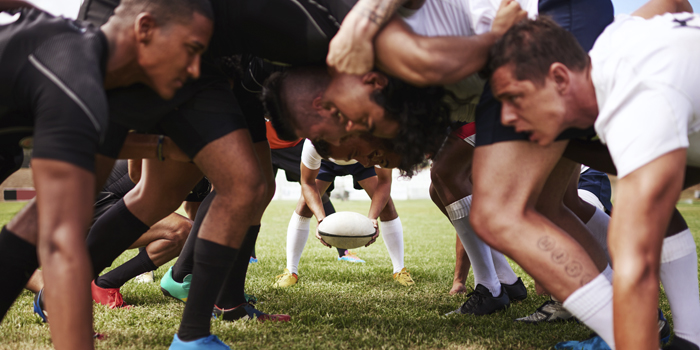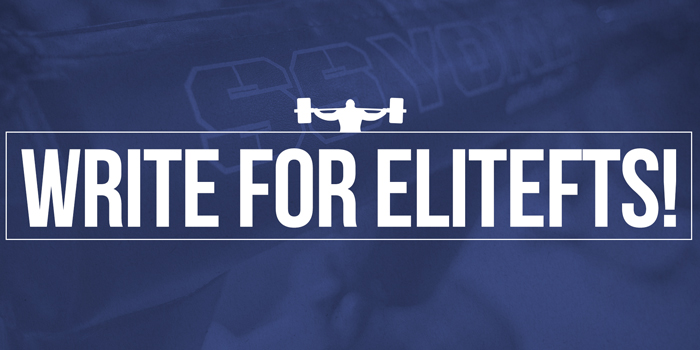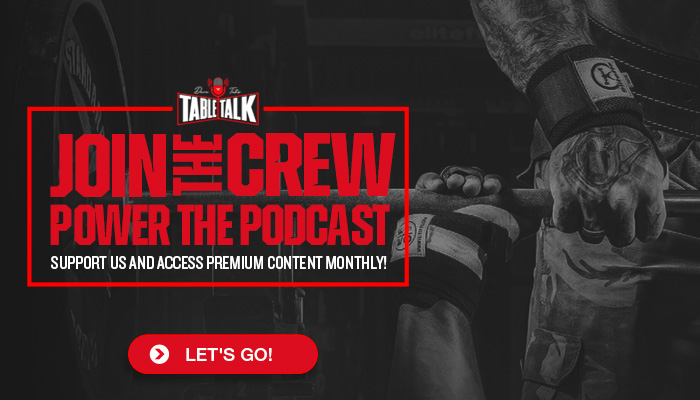
I have been writing programs for various people and groups for over 40 years now, and it has always been one of the great joys in my life. The key has always been for me to educate each person or group on the WHY of the program, building a level of self-redundancy into the process. As in most aspects of life, we are judged by the outcomes, but if we focus purely on them, we miss the opportunities to refine and develop the processes.
Learning from Legends
I was raised in the era of Peary And Mabel Rader's IronMan magazine, and as a 15-year-old new "gym rat," I would pester the local newsagent trying to find out when the next volume would drop. I would devour each new edition, dive into new routines, and try to understand the writer's intent in each of the articles within. Authors such as Norman Zale, Dennis B Weiss, Peary Rader, David P Willoughby, Clarence Bass, and Carl Miller, to name just a few, cover an array of topics from nutrition to training for the strength sports and programs of the current crop of bodybuilders and lifters. Add these names to the list of phenomenal books and authors available through Bill Hinbern's Super Strength Training.
We miss a great opportunity to grow if we do not heed Sir Winston Churchill's words: " The farther backward you can look, the farther forward you can see."
I have always attempted to adhere to the "heavy and basic" concept in my programming while still spicing it up with an array of different sets and reps protocols to give the person I am writing the program the best chance to realize their potential. The "perfect" program has been a lifetime goal, and whilst probably unattainable, I have continued to develop my skills.
Guthrie Govan once said, "If you steal from one person, it is theft, and if you steal from lots of people, it is research." This has been a cornerstone of my programming development. Over the years, I have borrowed from many, and as Bruce Lee said, "Don't get set into one form. Adapt it and build your own, and let it grow. Be like water. Empty your mind, be formless, shapeless—like water. "
The 80/20 Rule
I like to keep about 80 percent of my programming similar over time, basically, the aspects of training and programming that have stood the test of time, while the other 20 percent is a fluid environment, seeing what new aspects are available, trialing them and either including or putting them to the side. As Bruce Lee again said, "Absorb what is useful, discard what is not, and add what is uniquely your own."
I have been honored and privileged to share this journey through the medium of elitefts over the last 12 years, and this is my current program based on my working with a group of international rugby players who have come to Christ Church to improve their rugby skills through an immersive four-month program at the Crusaders International Academy and local club rugby teams.
This is an in-season plan, and the different types of programs will reflect whether a player has played a game on the weekend and their playing status at the back end of the week. The needs of each player, specifically size, strength, power, and fitness, are all discussed with the player, and what I consider to be the best type of daily monitoring is simple. I ask, "How are you feeling today? Are you good to go?" If the answer is a yes, let's get into it. If it is a no, I consider what we need to modify and then allow the player to recover for the following week's game.
The Decision-Making Flow Chart
I developed the following decision-making flow chart as the starting point for each of these discussions with players. It’s based on a Saturday-to-Saturday game schedule, with Wednesday being a rugby-free day dedicated specifically to recovery. The focus of the programming in the front end of the week (Monday and Tuesday) is developmental.The back end of the week (Thursday and Friday) is getting ready to play if selected or addressing aspects of the physical development needed to be chosen the next week.
Here then, is the complete set of programs to work from the chart above in detail:
Circuit Options
| Beastly x 6 | Canterbury x 5 | Strongman x 4 | T-Rex x 3 |
| Deadlift/Hang Clean/Push Press/Front Squat/Bent Row/RDL 6 reps on each, followed by 2km Watt Bike or 750m Row or 500m Ski Erg | 20 m Sandbag Carry Push/DB Hang Clean/Hand Release Pushups/Gorilla Row/See Saw Shoulder Press/KB Swing 5 reps on each | Zercher Carry 20m Overhead KB Carry 20m Sand Bag Clean to each Shoulder x 5 Trap Bar Frame Carry 20m Prowler® Push 20m | KB Power Snatch KB Push Press KB Overhead Squat KB Hang Clean KB Single Arm Swing KB Single Arm Row KB Single Leg RDL KB Waiter’s Walk 20 meters |
Upper Body Size (Hypertrophy)
Choose either a workout from each of the Size programming columns.
Chest, Back, Shoulders and Arms
or
Choose from the Exercise Selection Chart
1 x horizontal push s/s pull
1 x vertical push s/s pull
Using only DB’s or KB’s or Machines (Hypertrophy sets and reps)
Body Part/Hypertrophy/Armour Plating Size Sessions
LEGS | CHEST | BACK | SHOULDERS | ARMS |
| Quadzilla/Wowstrings | Pectoral Punishment | Big Back Maniac | Boulder Shoulders | Arm Race |
| 1a. Front Squat (6) 1b. Reverse Lunge (12) 1c. Goblet Squat (25) | Triple Drop Incline DB Bench Press (45/30/15) | Head Supported Yates Row s/s Landmine Kroc Row | 1a. Savickas Press (6) 1b. Dips (12) 1c. DB Laterals (25) | EZ Barbell Curl s/s Swiss Bar Close Grip Bench Press |
| 1a. Back Squat (6) 1b. Leg Press (12) 1c. Leg Extension (25) | 3-way Standing Cable Flys Complex: Low to High, High to Low,Horizontal to Floor | 1a. Pullovers (6) 1b. Pulldowns to Chest (12) 1c. Straight Arm Pull Downs (25) | Shoulder Press Ladder on Hammer Press 1 – 10 alternate sides | Seated DB Hammer s/s Skull Crushers |
| 1a. RDL (6) 1b. Hip Thrust (12) 1c. Reverse Hyper (25) | Mechanical Advantage Push-Ups Complex: Feet Elevated, Normal, Hands Elevated | Mechanical Advantage Chins Complex: Wide/Shoulder/Close | DB Lateral Raises s/s Bradford Press | Incline DB Curls s/s Lying DB Rolling Extensions |
| 1a. Trap Bar Deficit Deadlift (6) 1b. Back Extension (12) 1c. Banded Good Morning (25) | Mechanical Advantage Dips: Ring Dips, Parallel Bar Dips, Bench Dips | 1a. Muscle Snatch (6) 1b. Fat Man’s Chins (12) 1c. Face Pulls (25) | 3-Way Shoulder Raise 1a. DB Press (6) 1b. Seated DB Lateral (12) 1c. Cable Bent-over (25) | DB Twist Curls s/sLow Incline Tate Presses |
Full Body Strength
| Program A (Week One) | Program B (Week Two) |
| Explosive Pull/Plyometric | Explosive Squat/Plyometric |
| Squat | Deadlift |
| Unilateral Hinge (Hip Pattern) | Unilateral Squat (Knee Pattern) |
| Bilateral Horizontal Upper Body Push s/s Upper Body Pull | Bilateral Vertical Upper Body Push s/s Upper Body Pull |
| Unilateral Vertical Upper Body Pull s/s Upper Body Push | Unilateral Horizontal Upper Body Pull s/s Upper Body Push |
Upper Body Strength
1 x Bilateral Horizontal Push
Super Set
1 x Bilateral Horizontal Pull
1 x Bilateral Vertical Push
Super Set
1 x Bilateral Vertical Pull
1 x Unilateral Push (any plane of movement)
Super Set
1 x Unilateral Pull (any plane of movement)
Lower Body Power/UB Strength
Explosive Pull s/s Lower Body Plyometric
Explosive Squat s/s 10 meter Run Rocket
Then;
Bilateral Upper Body Push
Super Set
Bilateral Upper Body Pull
Full Body Power
1a: Overspeed Acceleration (short bungee) 10 meters
1b: Knees to One Foot (week 1: 4 x 6)
1b: Single Leg Box Hops (week 2: 4 x 4)
1b: Single Leg Depth Jump to Split (week 3: 4 x 2)
1c: Resisted Acceleration Run Rocket 10 meters
2a: Explosive Pull 2b: Explosive Push 2c: Explosive Squat
Lower Body Strength and Power French Contrast Method
(Choose one movement from each category)
30 seconds rest between exercises and then 3 minutes rest after the complex
After you complete the French Contrast Method
1 x Unilateral Squat
Super Set
1 x Unilateral Hinge
Lower Body Power and Strength French Contrast Method Exercise Selection Chart
| 1a: A heavy compound lift: Bilateral Strength/Power | 1b: A force-oriented plyometric movement: Plyometrics | 1c: A speed-strength movement: Bilateral Strength/Power | 1d: A speed-oriented plyometric movement: Plyometrics |
| Back Squat | Seated Box Jumps | Prowler® Push | Band Assisted Vertical Jumps |
| Front Squat | Box Jumps | Hang Power Clean | Band Assisted Long Jumps |
| Box Squat | Knees to Feet | Band resisted Jump Squats | Band Assisted Sprint |
| Zercher Squat | Depth Jumps | Hang Power Snatch | Hops |
| Deadlift | Depth Jump to Split Landing | Band/Chain Box Squat | Ice Skater |
| Trap Bar Deadlift | Hurdle Jumps | Hang Split Snatch | Band Assisted Borzov Hops |
| Prowler® Push | Hurdle Hops | Band Assisted Deadlifts | Band Assisted Split Squats |
| Power Clean | Bench Blasts | DB Hang Cleans | Low Box Hops |
In the case of the French Contrast Method, if the player would like me to be more prescriptive, then they have the following pre-planned options to choose from over time.
French Contrast Method Workouts
Option One Option Two Option Three
A1: Trap Bar Deadlift A1: Box Squat A1: Power Clean
A2: Knees to Feet Jumps A2: Box Jumps A2: Seated Box Jumps
A3: Band Box Squats A3: Hang Power Clean A3: Band Assisted Deadlifts
A4: Band Assisted Vertical Jumps A4: Band Assisted Long Jump A4: Low Box Hops
Option Four Option Five Option Six
A1: Zercher Squat A1: Back Squat A1: Deadlift
A2: Depth Jumps A2: Hurdle Jumps A3: Repeat Long Jumps
A3: Resisted Sprint A3: DB Hang Clean A4: Band Jump Squat
A4: Band Assisted Split Jumps A4: Band Assisted Borzov Hops A4: Assisted Sprints (10 m)
Plyometrics, Jumps, and Med Ball Throw Options
Lower Body | Upper Body |
| Box Jumps/Hops | Drop Push-Ups |
| MB Forward Throw | Clap Push-Ups |
| Lateral Bench Blasts | Band Assisted Plyo Push-Ups |
| Repeat Standing Long Jumps | Wheelbarrow Arm Jumps |
| Repeat Hurdle Jumps/Hops | MB Drops with Partner |
| Borzov Hops | Crossover MB Push-Ups |
| Squat Jumps | MB Lateral Throw to Wall |
| Depth JumpsVariations | Kneeling MB Overhead Throw to Wall |
| Knees to Feet Jumps | MB Half Kneeling Side Toss to Wall |
| MB Overhead Throw | Standing MB Slam |
| Split Squat Jumps | Feet Elevated Plyo Push-Up |
| Hops (In Place/Travelling) | Wall MB Chest Pass |
| Seated Box Jumps with Foot Stamp | Partner MB Chest Pass |
| MB Scoop Toss | Kneeling MB Push to Wall |
| Band Assisted Repeat Vertical Jumps | Swiss Ball Sit Up And MB Throw against Wall |
| MB Scoop Toss | Forward MB Throw |
Players can choose from an array of movements listed below, or if they have an exercise they have used to good effect previously, then we can discuss its inclusion in the program.
The final piece in this programming journey is the sets and reps for each session over a three-week training cycle. After this, the players will start back at week one in the schedule and change exercises where appropriate, so there is no need for a download week.
Sets and Reps
| Week | Unilateral, DB/KB, Machine And Hypertrophy | Bilateral Strength and Power | Plyometrics and Med Ball | CARE |
| 1 | 4 x 12, 10, 8, 8 | 4 x 3/3 Cluster at 80+% | 4 x 6 | 2 x 12 |
| 2 | 4 x 10, 8, 6, 6 | 4 x 2/2 Cluster at 85+% | 4 x 4 | 2 x 10 |
| 3 | 4 x 8, 6, 4, 4 | 4 x 1/1 Cluster at 90+% | 4 x 2 | 2 x 8 |
Stay with your selected exercises for three (3) weeks, then change all movements for the next three (3) week cycle.
Header image credit: peopleimages12 © 123rf.com

Ashley Jones has worked in three professional sports across 30 years and four continents. He was awarded the NSCA's Professional Coach of the Year in 2016. Ashley holds his CSCS (Certified Strength and Conditioning Specialist) since 1988 and is an honorary lecturer in the School of Therapeutic Sciences, University of Witwatersrand, Johannesburg, SA.










